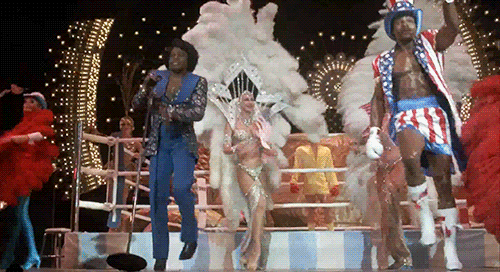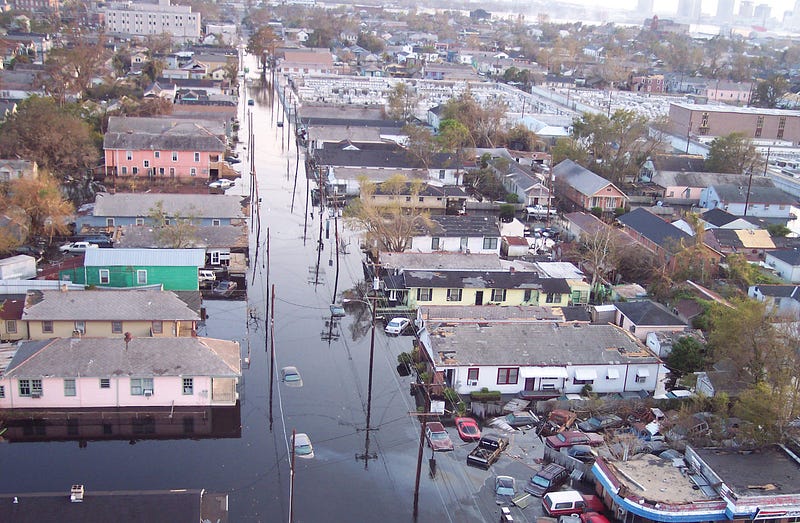As a child, I used to regularly walk past an independent shoe shop on the local high street. They sold a range of footwear from formal shoes to trainers (or sneakers for any American readers). On the latter, they included the freshest American imports that weren’t yet household names amongst the likes of Nike, Adidas, Puma and Reebok.
I’d yearn for some of the trainers displayed in the shop window. But for none more so than the black Patrick Ewing high tops, with the miniature basketball tag (if you know, you know). I coveted them for what seemed like an eternity but alas, I never did get them.
My desire for these trainers was inexplicable. I was too young to have any appreciation of what was cool or fashionable and I didn’t even know who Patrick Ewing was. Nevertheless, I knew these trainers were American and that straightaway gave them a kudos for which I couldn’t articulate yet accepted in my young mind.
Culturally, America represented what was deemed en vogue. Just like American music provided the soundtrack to the era, Hollywood would churn out glossy depictions of American society that albeit dramatised, would ooze credibility.
There was a shift in the veneration of American culture, and America as a whole. America just didn’t seem as credible as it once was and American influences on British society and culture were now rapidly declining.
It wasn’t just within popular culture where there was a departure in how America was once perceived. Against the backdrop of the Cold War, America was arguably second to none in the west. Even after the collapse of communism in the Soviet bloc, when the Cold War had caused US debt to soar, largely due to military spending, they continued to be seen as an economic and military powerhouse. But at some point, the allure of America began to erode.
Brand America, that once gleamed so brightly to outshine all of its competitors, was beginning to lose its sheen.
Culturally, economically and geopolitically, America was now beginning to represent a narrative that didn’t appeal in the way it once did. However, with its hubris, insularity and complacency, America didn’t realise that it was now beginning to be seen very differently, especially with its most folly of choices in the election of Donald Trump.
As the world watches Trump’s vision of making America great again, an America where the white supremacists have a mouthpiece in the White House and the once underlying prejudice of the country no longer needs to be covert, the image of America has torpedoed.
Yet while Trump might have provided the catalyst for this downward trajectory, even with the popularity of his predecessor Barack Obama, this shouldn’t really be viewed as a revelation.
With a late entry to World War 2 mitigating the impact of war on the country, the Marshall Plan and the subsequent narrative of the Cold War, America had established itself as the world’s arbiter and policeman with a global presence and influence that was unparalleled.
The Cold War was an ideological battleground for America and if you weren’t down with them, they were going to use their influence and position against you. In America’s immediate sphere of influence in the Caribbean and Latin America, its foreign policy showed just that.
The invasion of Grenada, frosty relations with Jamaica under socialist Michael Manley due to his links with Fidel Castro and of course the embargo against Cuba, all showed America in an unfavourable light. Moreover, these were states with populations and economies that were dwarfed by that of America. Were these actions really befitting of a nation that so many governments were clamouring to curry favour with?
It was a similar story worldwide although American imperialism was met with little opposition. Furthermore, it managed to engender enough resentment in creating instability and a general mess in so many places it touched. Consequently, that meant a shift where America was now experiencing increasing disdain. This unwittingly became the price for the pursuit of American hegemony.
Meanwhile, America has lost its dominance on the world stage in a changing world. Countries like India and China, once considered impoverished developing nations, have become economic powerhouses and emerging superpowers. Militarily, and with its ties to Russia, China provides a deterrent that keeps American military ambitions in check. Despite Trump’s misplaced arrogance regarding American military prowess, even he doesn’t want it with China (or at least his military advisors don’t). Geopolitically, the status quo for America just isn’t what it used to be.
Life in America, once the envy of foreign audiences, was also seen differently. The image of living in America was an export that much of the world sought to emulate. Although eventually, that image began to be chipped away at by an awareness that living in America wasn’t great for every American.
The response to Hurricane Katrina left America appearing to write cheques that its body couldn’t cash. If America lacked the wherewithal for a meaningful and effective response to a natural disaster, what business did it have claiming authority on how other countries ran their own affairs? Not to mention, it was now clear that America was acutely polarised between the ‘haves’ and the ‘have-nots’ and the latter’s experience wasn’t part of the lifestyle projected by America. Films like Boyz N the Hood showed this years earlier but Hurricane Katrina wasn’t a film. It was real life and inescapable in sharing an undesirable narrative of modern America.
Police killings of black people and systemic racism also brought America’s institutionalised ethics into disrepute and showed ills within its society that were hardly selling points for the country. It was the same for the vehement defence of the Second Amendment against a backdrop of fatal mass shootings including at schools. The praise that was once heaped upon America had now turned to criticism that shows no sign of stalling.
America was once akin to the most popular kid in school who everyone either wanted to be friends with or wanted to emulate everything about about. Though today, its popularity is waning and doing so rapidly. When you contrast the shift between the perception of America today with that of America at the end of World War 2 and throughout much of the Cold War, the difference is palpable.
Like the British Empire before it, America has seemingly began to run out of steam in maintaining its dominance. Once permeating popular culture and achieving political hegemony through its global influence, Brand America just isn’t what it used to be. And like most previous superpowers in history, even an opportunity for a rebrand is unlikely to see it return to its former glory.
I’d yearn for some of the trainers displayed in the shop window. But for none more so than the black Patrick Ewing high tops, with the miniature basketball tag (if you know, you know). I coveted them for what seemed like an eternity but alas, I never did get them.
My desire for these trainers was inexplicable. I was too young to have any appreciation of what was cool or fashionable and I didn’t even know who Patrick Ewing was. Nevertheless, I knew these trainers were American and that straightaway gave them a kudos for which I couldn’t articulate yet accepted in my young mind.
 |
| If you know, you know |
There was a shift in the veneration of American culture, and America as a whole. America just didn’t seem as credible as it once was and American influences on British society and culture were now rapidly declining.
It wasn’t just within popular culture where there was a departure in how America was once perceived. Against the backdrop of the Cold War, America was arguably second to none in the west. Even after the collapse of communism in the Soviet bloc, when the Cold War had caused US debt to soar, largely due to military spending, they continued to be seen as an economic and military powerhouse. But at some point, the allure of America began to erode.
Brand America, that once gleamed so brightly to outshine all of its competitors, was beginning to lose its sheen.
Culturally, economically and geopolitically, America was now beginning to represent a narrative that didn’t appeal in the way it once did. However, with its hubris, insularity and complacency, America didn’t realise that it was now beginning to be seen very differently, especially with its most folly of choices in the election of Donald Trump.
As the world watches Trump’s vision of making America great again, an America where the white supremacists have a mouthpiece in the White House and the once underlying prejudice of the country no longer needs to be covert, the image of America has torpedoed.
Yet while Trump might have provided the catalyst for this downward trajectory, even with the popularity of his predecessor Barack Obama, this shouldn’t really be viewed as a revelation.
With a late entry to World War 2 mitigating the impact of war on the country, the Marshall Plan and the subsequent narrative of the Cold War, America had established itself as the world’s arbiter and policeman with a global presence and influence that was unparalleled.
The Cold War was an ideological battleground for America and if you weren’t down with them, they were going to use their influence and position against you. In America’s immediate sphere of influence in the Caribbean and Latin America, its foreign policy showed just that.
The invasion of Grenada, frosty relations with Jamaica under socialist Michael Manley due to his links with Fidel Castro and of course the embargo against Cuba, all showed America in an unfavourable light. Moreover, these were states with populations and economies that were dwarfed by that of America. Were these actions really befitting of a nation that so many governments were clamouring to curry favour with?
It was a similar story worldwide although American imperialism was met with little opposition. Furthermore, it managed to engender enough resentment in creating instability and a general mess in so many places it touched. Consequently, that meant a shift where America was now experiencing increasing disdain. This unwittingly became the price for the pursuit of American hegemony.
Meanwhile, America has lost its dominance on the world stage in a changing world. Countries like India and China, once considered impoverished developing nations, have become economic powerhouses and emerging superpowers. Militarily, and with its ties to Russia, China provides a deterrent that keeps American military ambitions in check. Despite Trump’s misplaced arrogance regarding American military prowess, even he doesn’t want it with China (or at least his military advisors don’t). Geopolitically, the status quo for America just isn’t what it used to be.
Life in America, once the envy of foreign audiences, was also seen differently. The image of living in America was an export that much of the world sought to emulate. Although eventually, that image began to be chipped away at by an awareness that living in America wasn’t great for every American.
 |
| If only living in America was as cool as Apollo Creed and James Brown made it seem… |
The response to Hurricane Katrina left America appearing to write cheques that its body couldn’t cash. If America lacked the wherewithal for a meaningful and effective response to a natural disaster, what business did it have claiming authority on how other countries ran their own affairs? Not to mention, it was now clear that America was acutely polarised between the ‘haves’ and the ‘have-nots’ and the latter’s experience wasn’t part of the lifestyle projected by America. Films like Boyz N the Hood showed this years earlier but Hurricane Katrina wasn’t a film. It was real life and inescapable in sharing an undesirable narrative of modern America.
 |
| Ariel view of Hurricane Katrina destruction by Office of Response and Restoration is licensed under CC BY 2.0 |
Police killings of black people and systemic racism also brought America’s institutionalised ethics into disrepute and showed ills within its society that were hardly selling points for the country. It was the same for the vehement defence of the Second Amendment against a backdrop of fatal mass shootings including at schools. The praise that was once heaped upon America had now turned to criticism that shows no sign of stalling.
America was once akin to the most popular kid in school who everyone either wanted to be friends with or wanted to emulate everything about about. Though today, its popularity is waning and doing so rapidly. When you contrast the shift between the perception of America today with that of America at the end of World War 2 and throughout much of the Cold War, the difference is palpable.
Like the British Empire before it, America has seemingly began to run out of steam in maintaining its dominance. Once permeating popular culture and achieving political hegemony through its global influence, Brand America just isn’t what it used to be. And like most previous superpowers in history, even an opportunity for a rebrand is unlikely to see it return to its former glory.